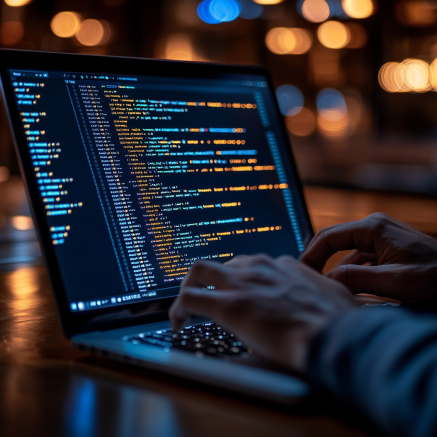I’ll never forget the moment when I realised DeFi was becoming something bigger—something more transformative than we’d imagined. It was around 2018 when DeFi started gaining real traction, but back then, it was mostly about pioneers experimenting with code and decentralised exchanges. Fast forward to today, and we’ve entered what many are calling Decentralised Finance 2.0. The roles emerging in this space are some of the most exciting I’ve seen in my years of crypto recruitment, and if you’re eyeing a career shift or just starting out, you can’t miss these opportunities.
But here’s the thing—DeFi 2.0 is more than just hype. It’s about scalability, enhanced user experiences, and bridging the gap between traditional finance and blockchain. And as the landscape evolves, so does the demand for specialised talent. Let me take you through the top roles in this space and share a bit of what’s worked (and what hasn’t) from my time helping clients build their dream DeFi teams.
Smart Contract Engineers: The Backbone of DeFi 2.0
Let’s start with the lifeblood of DeFi—smart contracts. I’ve seen candidates with smart contract skills getting snapped up in record time. Why? Because every DeFi protocol needs a solid foundation, and that foundation is built on secure, well-structured smart contracts.
The best example I’ve got is a client who was building a next-gen lending protocol. They needed a smart contract engineer who not only knew Solidity but understood how to make contracts both scalable and secure. We managed to find a candidate who had cut their teeth during the early days of Ethereum and was hungry to tackle bigger challenges. The impact? The protocol they helped build became one of the most robust in the DeFi 2.0 wave, attracting significant liquidity within months of launch.
The demand for these engineers is skyrocketing because they aren’t just coding; they’re essentially writing the rules of decentralised economies. If you’re looking to dive into this role, knowing Solidity or Rust is just the start. You need to understand security vulnerabilities, scalability issues, and be ready to handle a decentralised future that’s growing fast.
Product Managers: Bridging the Gap Between Tech and Users
This might surprise some people, but product managers in DeFi are becoming just as critical as developers. Why? Because DeFi 2.0 isn’t just about building complex financial systems—it’s about making them usable. And let me tell you, there’s nothing harder than taking a decentralised product and making it intuitive enough for the average user.
I remember working with a company that was developing a new automated market maker (AMM). They had the tech down, but the user interface was a mess. Enter the product manager—someone I found who had a blend of both crypto understanding and traditional product management experience from a fintech company. They were able to completely revamp the user flow, simplifying everything without losing the complexity that made the product powerful. It was a game changer.
If you’re thinking about this role, it’s not just about knowing blockchain. You’ve got to have a keen eye for user experience, be able to work with developers and marketers alike, and have the vision to turn raw tech into a polished product that real people want to use.
DeFi Analysts: Data-Driven Insights that Drive Growth
One of the newer roles in Decentralised Finance 2.0 that wasn’t as prominent a few years back is the DeFi analyst. This role is all about crunching the numbers, understanding liquidity flows, and making data-driven decisions that influence everything from tokenomics to user retention strategies.
I worked with a startup recently that was trying to fine-tune its yield farming model. They had developers and marketers, but what they really needed was someone to dive deep into the data and analyse user behaviour. We found a candidate who had a background in both finance and data science—an absolute gem in today’s market. They were able to provide insights that helped the company adjust their incentives in real-time, which led to higher user engagement and better returns for participants.
For anyone keen on this role, a solid understanding of both traditional finance and DeFi is key. You’ll be monitoring liquidity, optimising staking rewards, and ensuring that the protocol stays competitive in a market that moves at lightning speed.
Community Managers: Building Trust in Decentralised Networks
If you’ve ever been involved in a DeFi project, you’ll know how vital the community is. In decentralised ecosystems, users are more than customers—they’re stakeholders. I’ve seen many projects rise or fall based on how well they manage their communities. Community managers in DeFi 2.0 aren’t just moderators—they’re leaders who can shape public opinion, manage governance proposals, and keep users engaged.
I once recruited a community manager for a DAO that was struggling to maintain engagement post-launch. The candidate we found had extensive experience in both crypto and traditional social media management. They revamped the communication strategy, creating more transparency around governance votes and even hosting live AMAs with the development team. The result? Increased community participation and more confidence in the project’s direction.
To excel in this role, you’ve got to be adaptable, have excellent communication skills, and genuinely enjoy interacting with people. The ability to manage token holder sentiment is crucial, and so is understanding how governance processes work within decentralised systems.
Governance Coordinators: The Architects of Decentralised Power
Governance is at the heart of Decentralised Finance 2.0. Unlike traditional companies, DeFi protocols rely on their communities to make decisions—everything from protocol upgrades to tokenomics tweaks. This is where governance coordinators come in. They’re the ones who ensure the right proposals are made, the community is well-informed, and voting processes run smoothly.
I’ve seen this role evolve dramatically. A year ago, it was enough to just have someone sending out voting links and summarising proposals. Today, the best governance coordinators are strategically involved in shaping the future of their protocol. They help drive consensus and even influence the long-term vision of the project.
If this role intrigues you, you’ll need a deep understanding of decentralised governance mechanisms, strong communication skills, and the ability to rally a community around key initiatives. You’ll be the bridge between the developers, token holders, and the future of the project itself.
The Future is Decentralised—Are You Ready?
Decentralised Finance 2.0 is opening doors that didn’t even exist a few years ago. Whether you’re a developer, product manager, analyst, or community leader, there’s a role for you in this evolving landscape. The best part? The work you do here isn’t just about landing a job—it’s about contributing to a movement that’s reshaping finance.
I’ve seen firsthand how this space can accelerate careers and push the boundaries of what we thought was possible in finance and tech. So, the question is—are you ready to dive into decentralised finance? The opportunities are out there, and the time to jump in is now.



